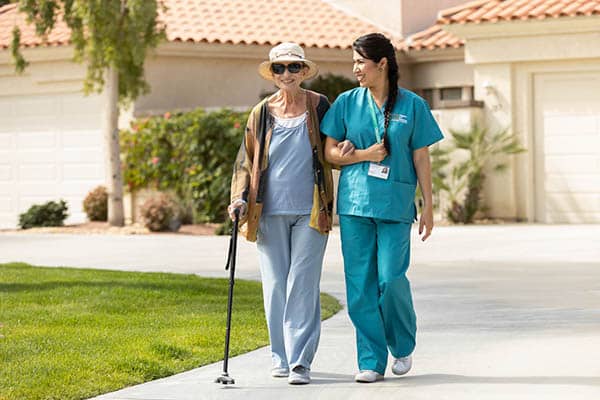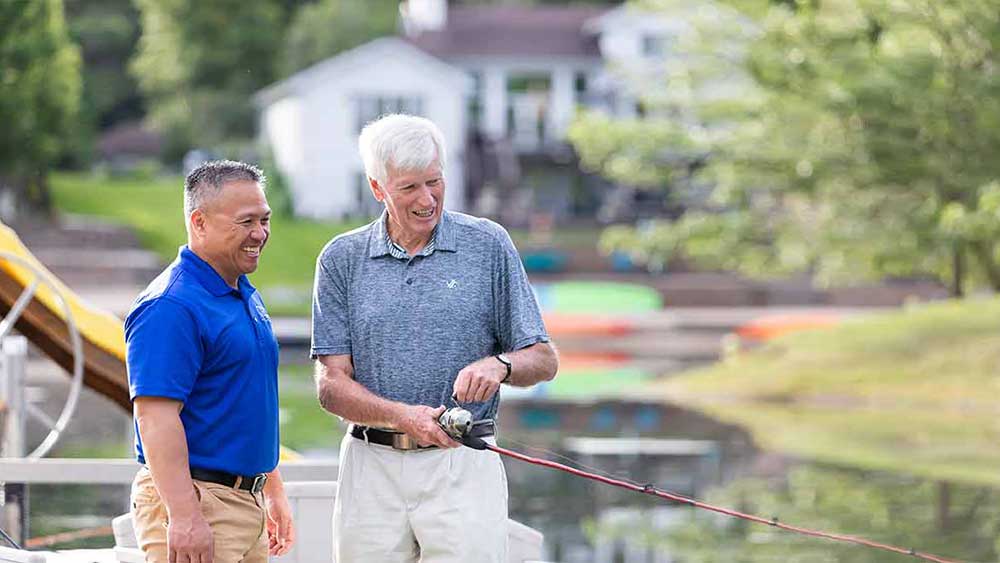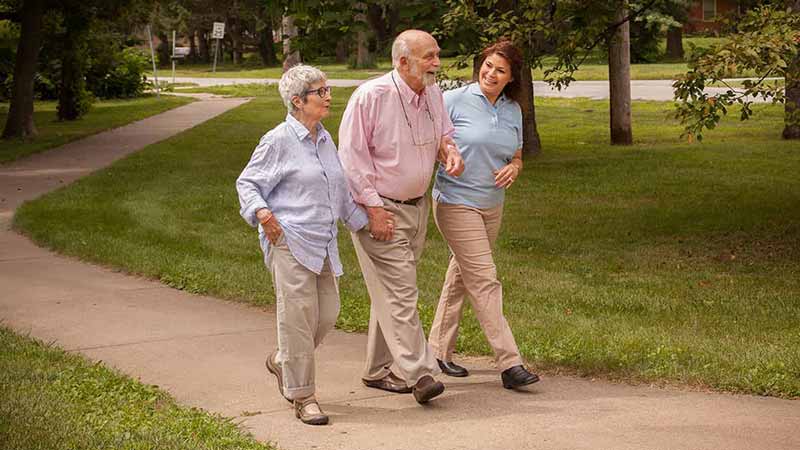

Living at Home With Parkinson’s Disease
Each year, more than 60,000 people in the U.S. find out they have Parkinson’s disease, a chronic, progressive brain disorder that causes uncontrollable body movements, muscle stiffness and balance problems. Speech may be slow and expressionless, and personality changes also are common.
Parkinson’s is diagnosed based on the person’s health history and a physical examination. Blood tests and other laboratory tests are only useful to rule out other conditions. The National Institutes of Health reports that diagnosis is often confirmed when a patient experiences improvement after taking medications prescribed for Parkinson’s.
Beyond medication, other treatments for Parkinson’s disease include surgically implanted deep brain stimulators to improve symptoms; physical, occupational and speech therapy; and changes in diet and exercise.
When Parkinson’s disease is diagnosed in a loved one, early planning is important. While some people with Parkinson’s will experience only minor motor disruptions, others will eventually need full-time care support.
As the disease progresses, moving to an assisted living or other supported living facility sometimes is the best choice. But many people with Parkinson’s prefer to stay in their own home, or that of a loved one, for as long as possible.
Before making that decision, family should assess the suitability of the home. Is single-story living possible? Could modifications make the home more accessible? Modifications range from simple and inexpensive—for example, a raised toilet seat and handrails—to more extensive remodeling, such as enlarged doorways, a walk-in shower and safer flooring.
Next, consider the care assistance your loved one could need as the disease progresses. The person’s spouse, adult children or other loved ones could provide care. But as your loved one’s needs change, this could become a more difficult challenge. Many families hire professional in-home care to allow their loved one to stay safe at home longer.

If your loved one is living with Parkinson’s, here are ways in-home care can help:
Care coordination and transportation. Medical management of Parkinson’s disease can be complicated. Your loved one likely will have frequent appointments with their doctor and specialists, such as physical, occupational or speech therapists. The caregiver can accompany your loved one to these appointments and provide transportation if your loved one is no longer able to drive.
Medication reminders. Your loved one may be taking a number of medications—some to treat the underlying cause of the disease, and others to address symptoms. These medications are only effective when taken correctly. The caregiver can pick up prescriptions and provide medication reminders.
Meal preparation and assistance. Good nutrition is important for people with Parkinson’s. The caregiver can go grocery shopping and prepare meals as recommended by the doctor. A trained caregiver also can provide assistance if your loved one has difficulty feeding themselves.
Fall prevention and safety precautions in the home and out. Tremor, stiffness, and balance problems raise the risk of falls for people with Parkinson’s. A trained caregiver can provide hands-on assistance to help your loved one walk, sit down and stand up safely, get in and out of the bed or a chair, and get into and out of the car.
Assistance with personal care. The changes of Parkinson’s can make bathing, dressing, grooming and using the toilet more difficult. A professional caregiver can provide assistance while preserving your loved one’s dignity. Caregivers also keep the home clean and do laundry.
Companionship and communication. People with Parkinson’s can become socially isolated. A trained caregiver will have the understanding, patience and awareness to encourage pleasant social interaction, even when speech, voice problems, and reduced facial muscle movement make conversation more difficult.
Supervision for exercise. Physical activity helps people with Parkinson’s maintain muscle tone and flexibility. It might even slow the progression of the disease. Having a caregiver close by creates confidence and motivation to follow the doctor’s “prescription” for exercise.
Support for family caregivers. When family caregivers try to provide all their loved one’s care on their own, they are at risk of caregiver burnout and a decline in their own health. Bringing in professional care lowers their stress and allows them to spend their time with their loved one doing things they all enjoy.
It’s important to hire from an agency that is available for your questions and concerns, provides training for their caregivers, and offers a range of care solutions.
Right at Home caregivers are trained to support the health and well-being of people who are living with Parkinson’s disease. Contact your local Right at Home today and ask for a FREE in-home consultation.*
*Home care services vary by location.







